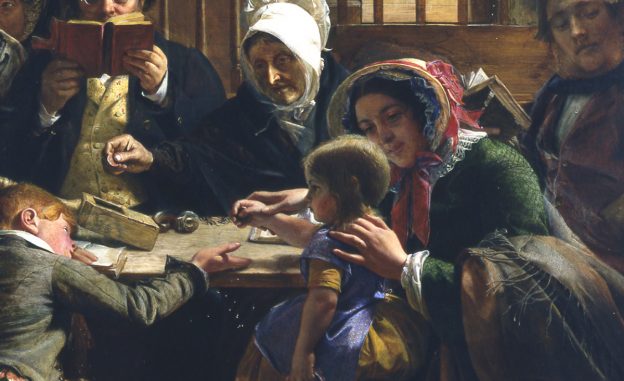Here it comes – the money talk! Money is very dear to our hearts, and drives fear into many a Bible Teacher’s heart when such a passage arrives. Too many people in positions of authority, many of them supposedly religious teachers, major on the money and minor on the Gospel. But because of the importance of possessions to people, it is an important topic in the Bible.
After freeing the Israelites from slavery in Egypt and entering into a covenant relationship with them at Sinai, God begins to explain to Moses the requirements for his dwelling-place with them, which they would construct from their own contributions. This giving was to be freely given, generously contributed from their wealth, and dedicated for God’s glory. Our giving to building Christ’s Church should be the same.
On Mount Sinai, surrounded and shrouded by God’s presence from the Israelites below, God explained to Moses his requirements for building a portable sanctuary or dwelling-place with his people (v.1).
Moses was to “Speak to the people of Israel, that they take for me a contribution” (v.2). While God could have chosen to miraculously create a sanctuary for himself, or miraculously provided the raw materials, he did not choose to do so. Instead, God ordained that the Israelites were to construct it themselves, and contribute to it themselves.
But unlike earthly kings and rulers whose contributions were requested with the threat of force, God’s request for contributions sought that they were freely given. “From every man whose heart moves him you shall receive the contribution for me” (v.2), rather than extracting through threat of punishment.
Their contributions were also to be from their wealth. The Almighty God, Maker of Heaven and Earth, was worthy of more than a shanty shack from some spare cardboard and timber offcuts. Instead, they were to contribute to God of the very finest and richest of their possessions to make a house fitting for a Divine King.
Firstly, they were to give “gold, silver, and bronze” (v.3), precious metals which still hold great value to us today.
Secondly, they were to give expensive fabrics: “blue and purple and scarlet yarns and fine twined linen” (v.4). These coloured yarns were expensive because they were coloured through an expensive process involving shellfish and insects, and so these colours were associated with royalty.
Thirdly, they were to give practical items. They were to provide “goats’ hair, tanned rams’ skins, goatskins” (vv.4-5) which provided protection from rain and tough padding for precious items.
Fourthly, they were to source “acacia wood” for constructing various parts of the dwelling, and “oil for the lamps, spices for the anointing oil and for the fragrant incense” (vv.5-6) to enable lighting and pleasing sacrifices to God.
Fifthly, they were to contribute “onyx stones, and stones for setting, for the ephod and for the breastpiece” (v.7) to enable the priests to dress appropriately for their sacrificial service in God’s House.
Where were these riches from? From the wealth that the Israelites plundered from the Egyptians when god rescued them from Egypt (cf. Exodus 12:35-6).
The riches given were not for the enrichment of Moses and Aaron but for God’s Glory. With the contributions of their possessions they were to “make me a sanctuary, that I may dwell in their midst” (v.8).
What God proposed was building a portable temple, a house for God to dwell specially with his covenant people. The riches were given to ensure God’s House was suitable to reflect his glory to the Israelites and any foreigners who saw it.
This temple was not based on earthly designs from Egypt or an architectural competition, but “exactly as I show you concerning the pattern of the tabernacle, and of all its furniture, so you shall make it” (v.9).
God would provide the design of the house befitting his glory, according to a heavenly pattern he had already established (Heb. 8:5).
Like the Israelites, we too are called by God to give freely (2 Cor. 9:7). God could miraculously raise the finances and provide the possessions to pay for his preachers, the worship spaces, the relief of the poor, and the extension of the Kingdom through the preaching of the Gospel. But he has chosen to use us as his hands, his feet, and his providers.
Nobody should feel compelled by a Preacher’s words to give, but we should desire to freely give. If we do not, then we should pray for God to give us the heart to freely give, having freely received.
And while we should not give ourselves into bankruptcy, nor should we be stingy toward God. Ultimately we give to God, not a church or the preacher. Like Israel, we should give generously from our wealth and sacrifice some luxury for God.
When we give generously to God we are giving the means which God uses to build his Temple on earth, the Church. While ordinary people labour, it is God who gives the growth; building his sanctuary here on earth with us, his people.

